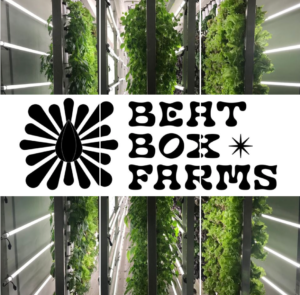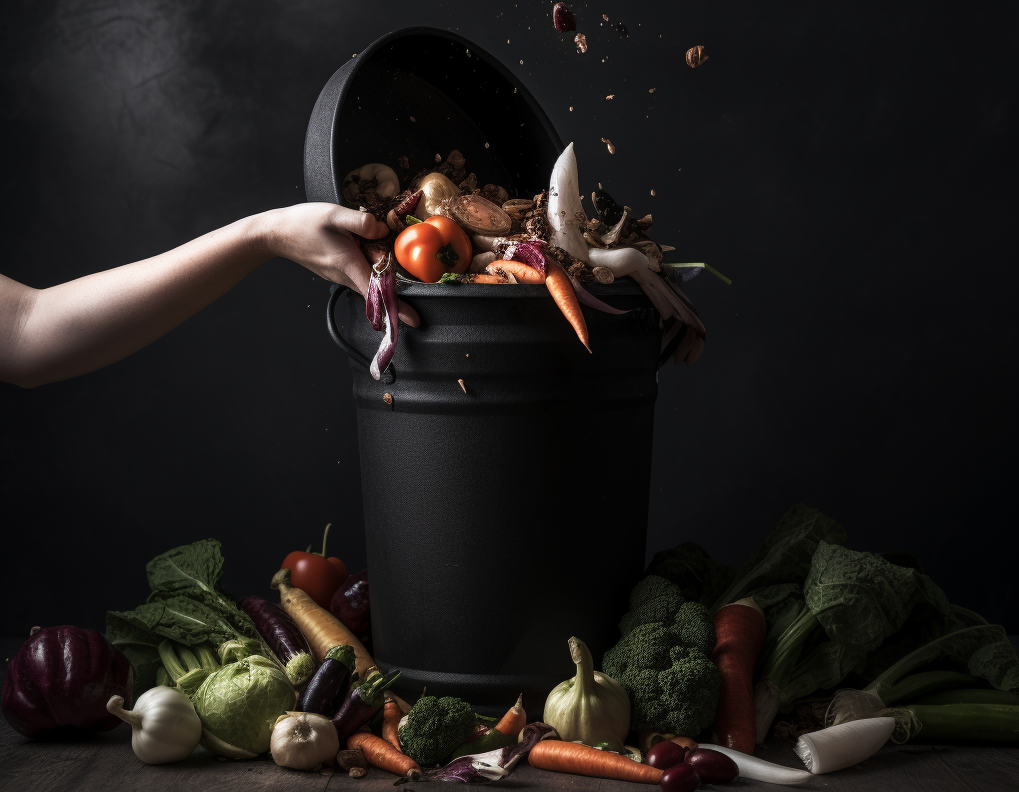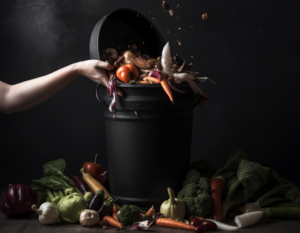Edible Beats, the 100% Employee-Owned Denver-based restaurant group founded by Chef Justin Cucci, has announced the installation of a Hydroponic FarmBox by Colorado-based FarmBox Foods in the backyard of their plant-based Denver staple, Vital Root.
Coined BeatBox Farms, the hydroponic farm fits perfectly into the Edible Beats family, where a love of music and sustainability are at the forefront of every initiative. This specific initiative is a step towards providing all of their restaurants, including Root Down, Vital Root, Linger, El Five and Ophelia’s with their own homegrown fresh produce, adding to their over 50% locally sourced ingredients within Colorado. Embedded in the fabric of Edible Beats restaurants are their commitment to sustainability and waste reduction. From 100% wind-powered buildings, to compostable storage bags and gloves, BeatBox Farms is another step towards reducing packaging waste and lowering their carbon footprint, as it eliminates the shipping of the produce.
Within the 320-square-foot Vertical Hydroponic Farm (VHF), plants will go from seed to harvest and can yield the equivalent of up to 2.5 acres of farmland annually, with the capability to grow 7,800 plants at once. Expecting to harvest 120 lbs of veggies and greens weekly, they will be growing a variety of produce: Red Russian Kale, Runaway Arugula, Tat Soi, Hon Soi, Wasabina Mustard Greens, Scarlet Frills Purple Mustard Greens, Watercress, Basil, Cilantro and Dill. And by filtering and recycling water, BeatBox Farms uses 99% less water than traditional farms, and is committed to being pesticide-free, insecticide-free and fertilizer-free. All factors that allow Edible Beats to avoid groundwater contamination.
At the helm, Edible Beats FarmBox Cultivator and AgriCULTURist, Cori Hunt has had a rich history in the culinary and farming world. After working in Central Illinois to start the first Farm/Restaurant collaboration, Epiphany Farms, Cori says, “I have witnessed the better path first hand. Now I strive to help spread the word of this better path and align myself with likeminded people and groups. That led me to Edible Beats, who have been on the frontlines of this concept in Denver since the conception of Root Down.”
With this kind of local farming, the self contained vertical hydroponic grow system produces 10x more volume year round then the equivalent size of a traditional farm, with a daily consumption of roughly $20 in energy, and only 4 gallons of water per day. Cori shares, “Together we are attempting yet again to break as many molds as possible, pick up the pieces and build a better future.” As a leader in farm-to-table dining, Chef/Founder Justin Cucci has pioneered a culture of sustainability over the years with practices that go well beyond the kitchen. “I really wanted to have a sustainable culture for the employees,” explained Cucci. 
This year, Edible beats joined a small handful of restaurants in the country, implementing a pioneering, self-funded 100% Employee Stock Ownership Plan. Rarely seen in the restaurant industry, his 350+ Edible Beats employees will all share in the long-term financial worth of the company, which Cucci calls “the quintessential win-win.”



